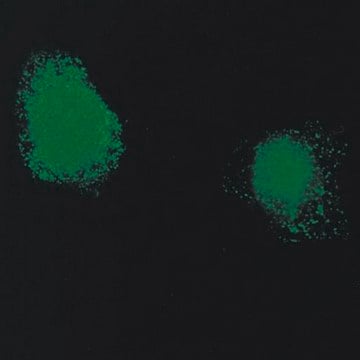AB1056F
Anti-Adenovirus Antibody, FITC-conjugated
Chemicon®, from goat
About This Item
Prodotti consigliati
Origine biologica
goat
Livello qualitativo
Coniugato
FITC conjugate
Forma dell’anticorpo
purified antibody
Tipo di anticorpo
primary antibodies
Clone
polyclonal
Reattività contro le specie
human
Produttore/marchio commerciale
Chemicon®
tecniche
immunofluorescence: suitable
immunohistochemistry: suitable
Condizioni di spedizione
wet ice
Specificità
Immunogeno
Applicazioni
Optimal working dilutions must be determined by end user
Infectious Diseases
Infectious Diseases - Viral
Stato fisico
Stoccaggio e stabilità
Note legali
Esclusione di responsabilità
Not finding the right product?
Try our Motore di ricerca dei prodotti.
Codice della classe di stoccaggio
12 - Non Combustible Liquids
Classe di pericolosità dell'acqua (WGK)
WGK 2
Punto d’infiammabilità (°F)
Not applicable
Punto d’infiammabilità (°C)
Not applicable
Certificati d'analisi (COA)
Cerca il Certificati d'analisi (COA) digitando il numero di lotto/batch corrispondente. I numeri di lotto o di batch sono stampati sull'etichetta dei prodotti dopo la parola ‘Lotto’ o ‘Batch’.
Possiedi già questo prodotto?
I documenti relativi ai prodotti acquistati recentemente sono disponibili nell’Archivio dei documenti.
Il team dei nostri ricercatori vanta grande esperienza in tutte le aree della ricerca quali Life Science, scienza dei materiali, sintesi chimica, cromatografia, discipline analitiche, ecc..
Contatta l'Assistenza Tecnica.





